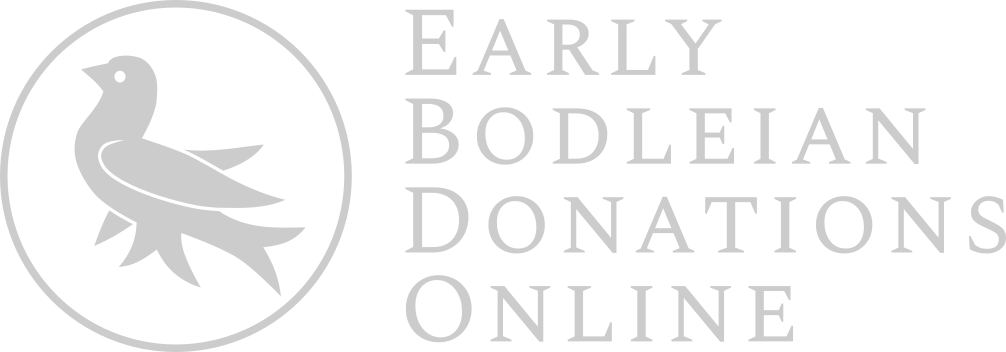The Data

This study of the earliest donations made to the Bodleian Library at Oxford from 1600-1620 has amassed large amount of research data concerning the donations, the people who made them, and the books and manuscripts in the Bodleian’s collections. The whole dataset is freely available, under a Creative Commons license, to all who would be interested in it:
The data are structured and stored in a MySQL database. Users are able to download this database as both MySQL dump files and in .csv format. Full documentation describing the design of the database and the decisions made by the project team is included with the download package in PDF. We hope that the data will be of use to both a scholarly audience and to interested parties outside of academia.
Donations to the Library were recorded in the so-called Benefactors Register, an ornate book intended for public display, its entries initially printed but leaving plenty of space for later gifts to be recorded in a large, clear hand. From the Register we have records of the names of those who made donations, as well as descriptions of the books, manuscripts, objects, and money that made up the donation, including details of items bought with the money donated. Records from the Register are also supplemented with donations evidenced in other sources, such as the letters of Thomas Bodley.
As each donation makes very clear who the donor was, we have been able to build up a picture of who was donating to the Bodleian. One of the intellectual aims of the project is to examine this cohort of “scholarly philanthropists” both as a group and as individuals. What sort of people gave to the Bodleian, how were they linked to Thomas Bodley, the University or with one another, what sort of books did people think belong in what was projected to be the greatest public library in England?
The most challenging data to capture has been bibliographic. While the Register was on display, and it records the gifting of books and manuscripts, it is in no way a catalogue and would have been of no practical help to seventeenth-century scholars in search of specific books. Many titles it gives are descriptive rather than precisely accord to what’s printed in the book. We have undertaken a material survey of books still held in the collections of the Bodleian to identify as many as possible donated copies. Doing this also means we also have a rich source of item-specific information about the materiality of the book: its binding, the presence any marginal annotations, etc.
